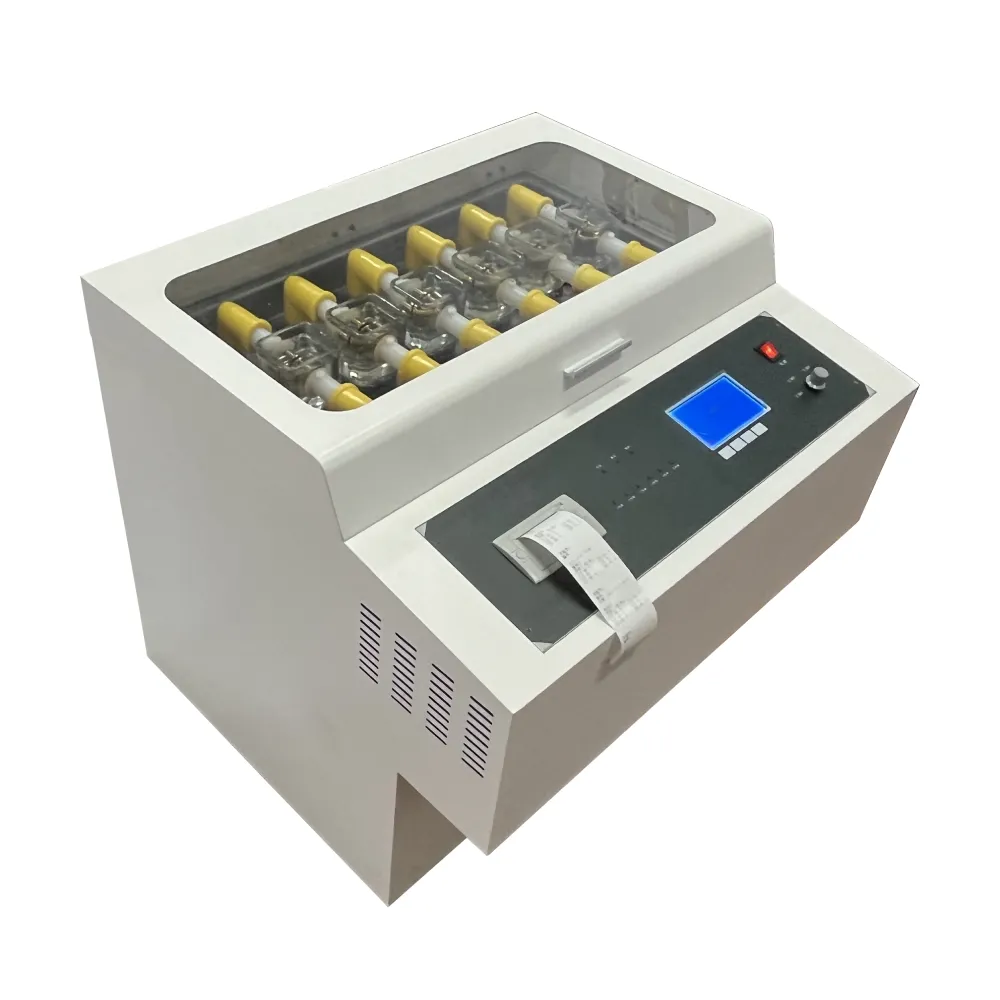TEL:
+86-0312-3189593
 English
English

Telephone:0312-3189593

Email:sales@oil-tester.com

-
 Afrikaans
Afrikaans -
 Albanian
Albanian -
 Amharic
Amharic -
 Arabic
Arabic -
 Armenian
Armenian -
 Azerbaijani
Azerbaijani -
 Basque
Basque -
 Belarusian
Belarusian -
 Bengali
Bengali -
 Bosnian
Bosnian -
 Bulgarian
Bulgarian -
 Catalan
Catalan -
 Cebuano
Cebuano -
 China
China -
 China (Taiwan)
China (Taiwan) -
 Corsican
Corsican -
 Croatian
Croatian -
 Czech
Czech -
 Danish
Danish -
 Dutch
Dutch -
 English
English -
 Esperanto
Esperanto -
 Estonian
Estonian -
 Finnish
Finnish -
 French
French -
 Frisian
Frisian -
 Galician
Galician -
 Georgian
Georgian -
 German
German -
 Greek
Greek -
 Gujarati
Gujarati -
 Haitian Creole
Haitian Creole -
 hausa
hausa -
 hawaiian
hawaiian -
 Hebrew
Hebrew -
 Hindi
Hindi -
 Miao
Miao -
 Hungarian
Hungarian -
 Icelandic
Icelandic -
 igbo
igbo -
 Indonesian
Indonesian -
 irish
irish -
 Italian
Italian -
 Japanese
Japanese -
 Javanese
Javanese -
 Kannada
Kannada -
 kazakh
kazakh -
 Khmer
Khmer -
 Rwandese
Rwandese -
 Korean
Korean -
 Kurdish
Kurdish -
 Kyrgyz
Kyrgyz -
 Lao
Lao -
 Latin
Latin -
 Latvian
Latvian -
 Lithuanian
Lithuanian -
 Luxembourgish
Luxembourgish -
 Macedonian
Macedonian -
 Malgashi
Malgashi -
 Malay
Malay -
 Malayalam
Malayalam -
 Maltese
Maltese -
 Maori
Maori -
 Marathi
Marathi -
 Mongolian
Mongolian -
 Myanmar
Myanmar -
 Nepali
Nepali -
 Norwegian
Norwegian -
 Norwegian
Norwegian -
 Occitan
Occitan -
 Pashto
Pashto -
 Persian
Persian -
 Polish
Polish -
 Portuguese
Portuguese -
 Punjabi
Punjabi -
 Romanian
Romanian -
 Russian
Russian -
 Samoan
Samoan -
 Scottish Gaelic
Scottish Gaelic -
 Serbian
Serbian -
 Sesotho
Sesotho -
 Shona
Shona -
 Sindhi
Sindhi -
 Sinhala
Sinhala -
 Slovak
Slovak -
 Slovenian
Slovenian -
 Somali
Somali -
 Spanish
Spanish -
 Sundanese
Sundanese -
 Swahili
Swahili -
 Swedish
Swedish -
 Tagalog
Tagalog -
 Tajik
Tajik -
 Tamil
Tamil -
 Tatar
Tatar -
 Telugu
Telugu -
 Thai
Thai -
 Turkish
Turkish -
 Turkmen
Turkmen -
 Ukrainian
Ukrainian -
 Urdu
Urdu -
 Uighur
Uighur -
 Uzbek
Uzbek -
 Vietnamese
Vietnamese -
 Welsh
Welsh -
 Bantu
Bantu -
 Yiddish
Yiddish -
 Yoruba
Yoruba -
 Zulu
Zulu
jan . 09, 2025 12:03
Back to list
transformer oil analysis
Transformer oil analysis, an indispensable component in maintaining the health and efficiency of electrical transformers, significantly contributes to preventing catastrophic failures and extending the lifespan of equipment. This process involves meticulous examination of the insulating oil used in transformers, which serves as a coolant and electrical insulator. To ensure the successful application of transformer oil analysis, expertise from seasoned engineers and accurate interpretation of data are essential.
Individuals dedicated to the domain of transformer oil analysis emphasize the importance of establishing credibility through institutional affiliations and certifications. By adhering to internationally recognized standards such as IEC 60599 for DGA and ASTM methods for oil quality assessment, experts demonstrate their commitment to maintaining rigorous quality control. Additionally, alliances with industry-leading laboratories equipped with state-of-the-art testing facilities further solidify their authoritative standing in the field. The trustworthiness of conclusions drawn from transformer oil analysis relies heavily on the expertise of analysts and the integrity of testing protocols. Organizations promoting transparency in reporting and maintaining open lines of communication with clients cultivate trust. Professionals who prioritize clear documentation and explanation of findings ensure that clients are well-informed and confident in implementing recommended actions. In sum, transformer oil analysis stands as a pillar of asset management in the electrical industry. Real-world experience, profound expertise, authoritative practices, and unwavering trustworthiness collectively underpin the successful implementation of oil analysis programs. By embracing these principles, industry specialists not only avert costly downtime and equipment failures but also achieve operational excellence, thus ensuring the prolonged and efficient functioning of transformers.


Individuals dedicated to the domain of transformer oil analysis emphasize the importance of establishing credibility through institutional affiliations and certifications. By adhering to internationally recognized standards such as IEC 60599 for DGA and ASTM methods for oil quality assessment, experts demonstrate their commitment to maintaining rigorous quality control. Additionally, alliances with industry-leading laboratories equipped with state-of-the-art testing facilities further solidify their authoritative standing in the field. The trustworthiness of conclusions drawn from transformer oil analysis relies heavily on the expertise of analysts and the integrity of testing protocols. Organizations promoting transparency in reporting and maintaining open lines of communication with clients cultivate trust. Professionals who prioritize clear documentation and explanation of findings ensure that clients are well-informed and confident in implementing recommended actions. In sum, transformer oil analysis stands as a pillar of asset management in the electrical industry. Real-world experience, profound expertise, authoritative practices, and unwavering trustworthiness collectively underpin the successful implementation of oil analysis programs. By embracing these principles, industry specialists not only avert costly downtime and equipment failures but also achieve operational excellence, thus ensuring the prolonged and efficient functioning of transformers.
Previous:
Next:
Latest news
-
Testing Equipment Industry Sees Major Advancements in 2025: Smart & Precision Technologies Lead the WayNewsJun.06,2025
-
Applications of Direct Current Generators in Renewable Energy SystemsNewsJun.05,2025
-
Hipot Tester Calibration and Accuracy GuidelinesNewsJun.05,2025
-
Digital Circuit Breaker Analyzer Features and BenefitsNewsJun.05,2025
-
Benefits of Real-Time Power Quality Monitoring Devices for Industrial EfficiencyNewsJun.05,2025
-
Earth Fault Loop Testing in High-Rise Building Electrical SystemsNewsJun.05,2025



